'Darkest days' in history for Turkey's press freedom
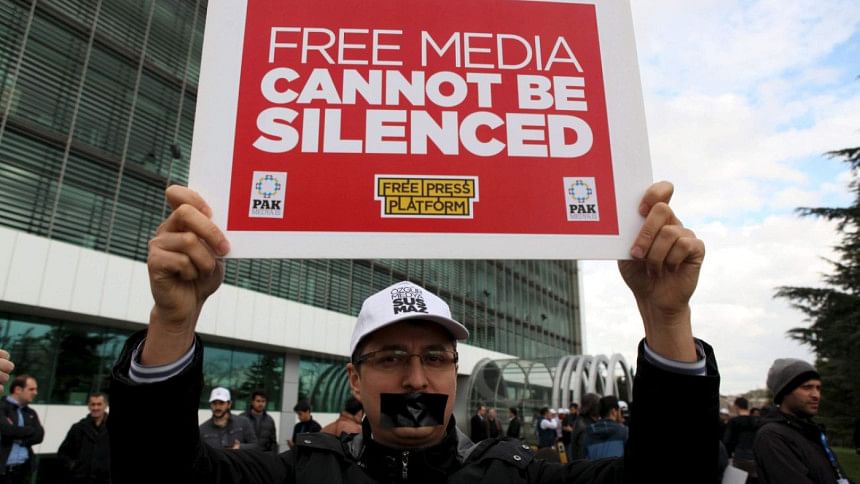
A leading Turkish newspaper opposed to President Recep Tayyip Erdogan and seized by authorities warned of the "darkest days" in the history of the press yesterday in a defiant edition as police used rubber bullets to disperse a new protest.
The late-night swoop against the Zaman newspaper raised fresh concerns over declining media freedoms in Turkey, a key EU ally ahead of a visit by Prime Minister Ahmet Davutoglu to Brussels Monday for a crucial summit meeting with EU leaders.
Zaman, closely linked to Erdogan's arch-foe, the US-based preacher Fethullah Gulen, was on Friday placed under the control of a board of trustees after a court order which critics said was another attempt to silence opposition media.
"The Constitution is suspended," the newspaper, which managed to print its latest issue despite the takeover, said on its front page in large font on a black background.
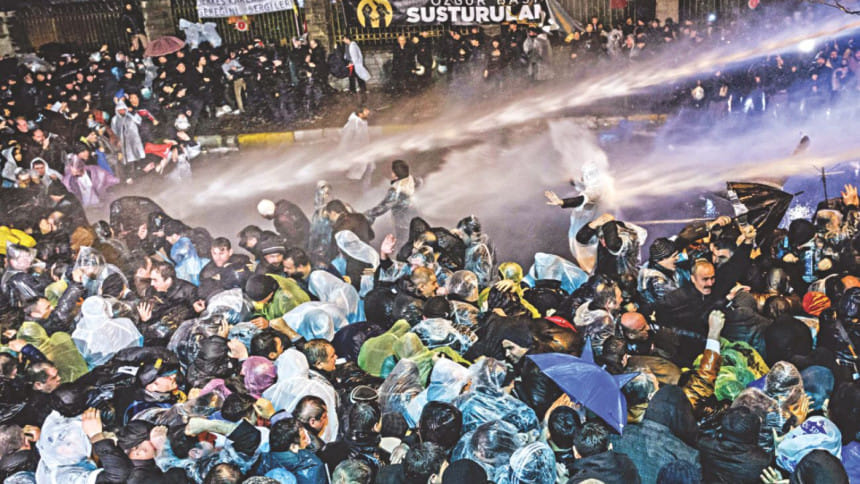
"Yesterday (Friday) marked one of the darkest days in the history of Turkish press," it said.
Turkish riot police yesterday fired rubber bullets and tear gas to disperse a new protest by the newspaper's supporters outside its Istanbul headquarters.
"Free press cannot be silenced," a group of demonstrators shouted.
Police used large amounts of tear gas, water cannon and rubber bullets to disperse around 500 people, an AFP photographer at the scene reported.
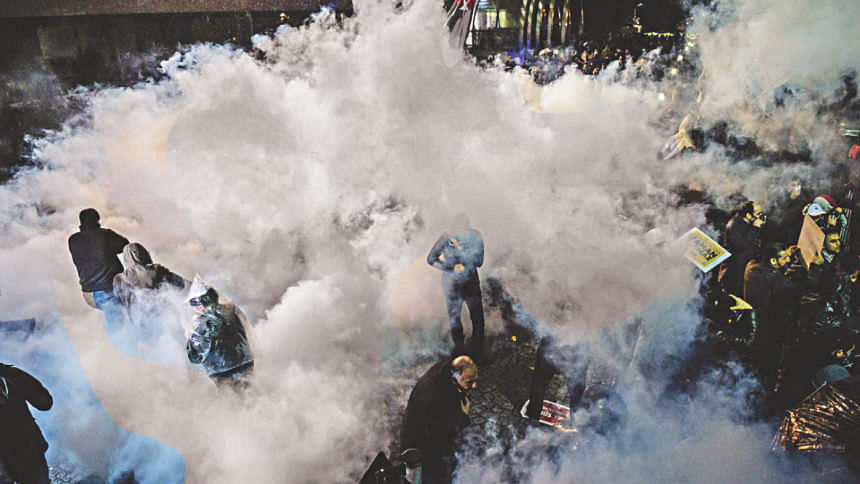
Zaman, with an estimated circulation of 650,000, went to print earlier than usual on Friday evening before the police raid and the number of its pages was reduced to 16 from 24, one of its journalists said.
Sevgi Akarcesme, the editor-in-chief of the paper's English language edition Today's Zaman, said on Twitter yesterday that the newspaper office had had all Internet connections cut.
"We are not able to work anymore," she wrote.
During Friday's raid, police first cleared protesters with tear gas and water cannon, then used bolt-cutters to open the gates before dozens of officers marched in to take over the building and formally place it under administration, media images showed.
Once the building was cleared, court-appointed administrators were bussed inside the complex to begin their work, local media reported.
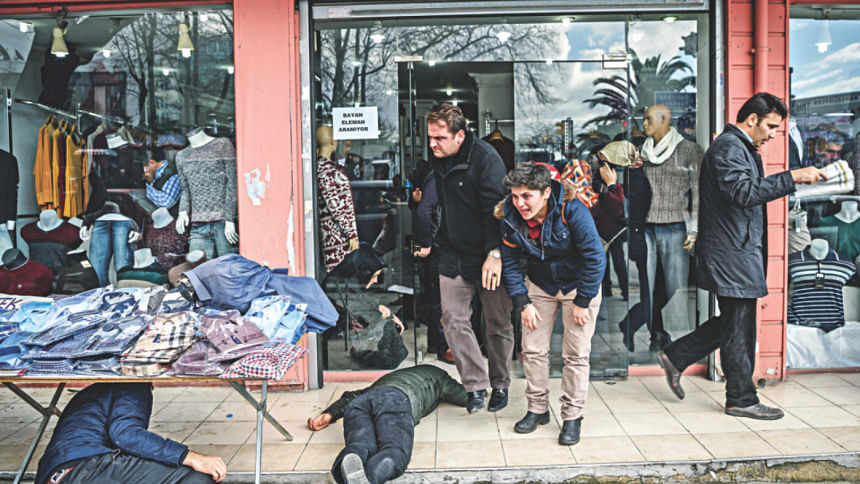
The new administrators yesterday fired Zaman's editor-in-chief Abdulhamit Bilici, press reports said.
On an official visit to Iran, Prime Minister Ahmet Davutoglu denied any government interference in the seizure of the newspaper.
"They are certainly not political but legal processes," he said in remarks carried by Turkish television.
"Turkey is a state governed by rule of law... It is out of the question for neither by me nor any of my colleague to interfere in this process," he said.
But he cautioned: "We should not shut our eyes to ... a parallel structure within the state using the press and other tools" to promote its agenda.
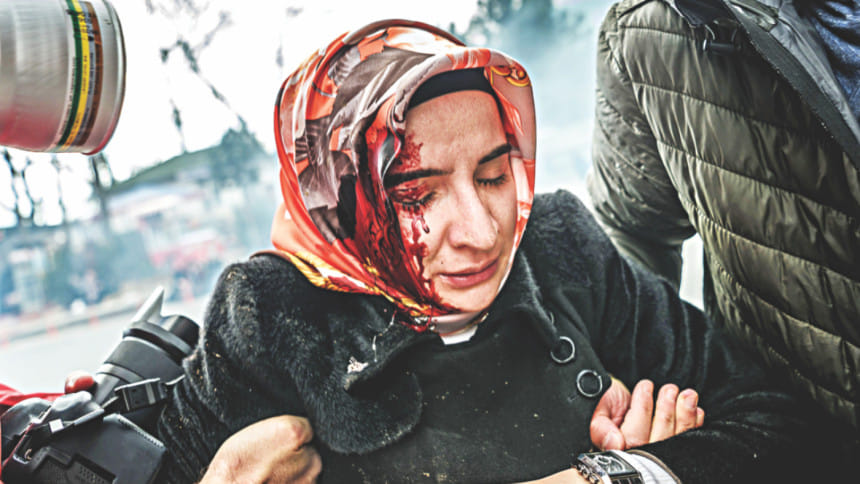
The raid prompted a worried response from the European Union, which urged Ankara to respect media freedom.
"The EU has repeatedly stressed that Turkey, as (an EU) candidate country, needs to respect and promote high democratic standards and practices, including freedom of the media," the EU's diplomatic service said in a statement.
The Russian foreign ministry called for a probe by the international community including the Council of Europe into the crackdown.
Washington also urged Turkey to protect freedom of speech, saying the court order was "the latest in a series of troubling judicial and law enforcement actions taken by the Turkish government targeting media outlets and others critical of it."
Emma Sinclair-Webb, senior Turkey researcher for Human Rights Watch, called the court order "a veiled move by the president to eradicate opposition media and scrutiny of government policies."

 For all latest news, follow The Daily Star's Google News channel.
For all latest news, follow The Daily Star's Google News channel. 



Comments